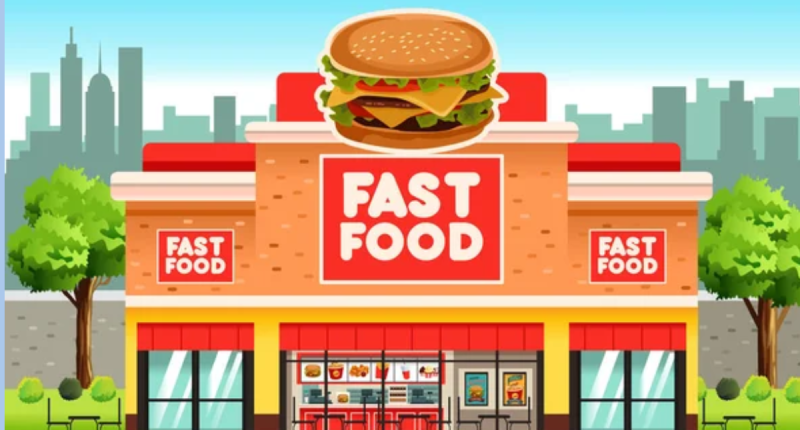Study Reveals Harmful Antibiotics in Fast Food – Ten popular fast-food chains tested positive for harmful veterinary drugs.
Veterinary drugs are medications that are used to diagnose, cure, mitigate, treat, or prevent disease in animals. They can be used to treat a wide range of conditions, including infections, pain, inflammation, and parasites.
Veterinary drugs can be administered in a variety of ways, including orally, topically, injectably, and via the eyes or ears. They can also be formulated into different dosage forms, such as tablets, capsules, liquids, and ointments.
Like human medications, veterinary drugs can have side effects. It is important to consult with a veterinarian before giving any medication to an animal, even if it is over-the-counter.
The specific veterinary drugs found in fast food, include antibiotics, antiparasitics, and contraceptives.
Don’t miss To Know: What Happens to Your Body When You Eat a Hot Dog

- A recent investigation by Moms Across America found three veterinary drugs and hormones in 10 food samples from some of the most popular fast-food restaurants in the United States.
- Specifically, the report found monensin in Taco Bell’s Beef Taco Supreme, Burger King’s Quarter Pounder with lettuce, tomato, and cheese, and McDonald’s Big Mac.
- Monensin and narasin were found in Dunkin Donuts’ Sausage, Egg, and Cheese Breakfast Sandwich (traces of Narasin), Wendy’s Cheeseburger, and Domino’s Pepperoni Cheese Pizza with extra pepperoni (traces of Narasin).
- Traces of narasin were found in the Double Smoke Bacon Cheddar and Egg Sandwich from Starbucks.
- Nicarbazin was found in Chick-Fil-A’s Chicken Sandwich.
Are these drugs harmful?
- Yes, these drugs can be harmful to humans. Monensin and narasin are antibiotics that are not approved for human use. Nicarbazin is an antiparasitic and contraceptive that is considered an eye irritant and has produced liver injury in animal studies.
What are the implications of this finding?
- This finding suggests that people who eat fast food may be exposed to harmful antibiotics and other veterinary drugs, even if they are not aware of it.
- It is important to note that the lab testing only found microgram doses of these medications in the food samples. However, even low doses of antibiotics can contribute to the rise of antibiotic resistance in people.
- Moms Across America points out that the annual gross sales of the top ten fast food chains were $134,308,000,000. They assert that the healthcare costs from consistently consuming food with toxins that harm human health are incalculable.
On the grounds of this study, Sound Health and Lasting Wealth decided to research more on the side effects of veterinary drugs on human
RELATED: Effects Of Excessive Antibiotic Use: 8 Prevention Tips Against Bacterial Resistance
Side Effects of Veterinary Drugs On Human
Veterinary drugs can have side effects on humans, just like they can have side effects on animals. The specific side effects that human experiences will depend on the type of drug, the dose, and the person’s individual characteristics.
Some of the most common side effects of veterinary drugs on humans include:
- Allergic reactions
- Skin reactions, such as itching, redness, and hair loss
- Respiratory problems, such as asthma and bronchitis
- Gastrointestinal upset, such as vomiting, diarrhea, and loss of appetite
- Neurological problems, such as headaches, dizziness, and seizures
- Organ damage, such as liver or kidney damage
In some cases, side effects can be serious or even life-threatening. It is important to be aware of the potential side effects of any medication before using it.
Here are some specific examples of side effects associated with different types of veterinary drugs:
- Antibiotics: antibiotics can cause allergic reactions, skin reactions, and gastrointestinal upset.
- Antiparasitics: antiparasitics can cause allergic reactions, respiratory problems, and neurological problems.
- Pain relievers: pain relievers can cause allergic reactions, gastrointestinal upset, and organ damage.
- Vaccines: vaccines can cause mild side effects, such as soreness at the injection site and fever. In rare cases, vaccines can cause more serious side effects, such as allergic reactions and neurological problems.
If you experience any side effects after using a veterinary drug, contact your doctor immediately. They can help you determine if the side effects are serious and what steps you need to take.
Here are some ways to reduce your risk of exposure to side effects from veterinary drugs:
- Always wear gloves when handling veterinary drugs.
- Wash your hands thoroughly after handling veterinary drugs.
- Avoid contact of veterinary drugs with your skin, eyes, and mouth.
- If you do come into contact with a veterinary drug, wash the affected area with soap and water immediately.
- Keep veterinary drugs out of the reach of children and pets.
- Store veterinary drugs in a cool, dry place.
- Dispose of expired or unused veterinary drugs properly.
If you have any questions or concerns about the side effects of veterinary drugs, be sure to talk to your doctor or veterinarian.
Conclusion
The finding that veterinary drugs and hormones are present in fast food is concerning. It is important to be aware of the potential risks of consuming fast food, and to make choices that are best for your health.
Also read | 15 Junk foods In Nigeria To Avoid For Good Health










